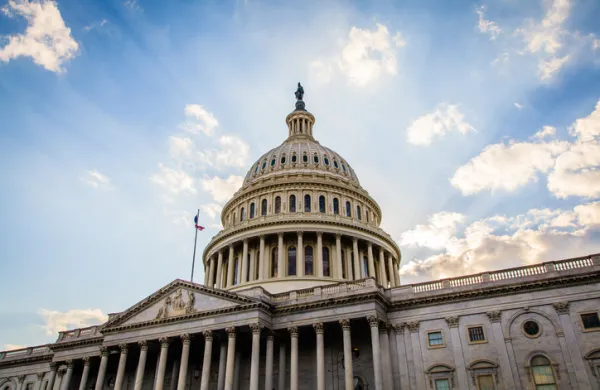The $25 billion Kansas Public Employees Retirement System has determined that complying with Republican state legislators’ latest anti-ESG bills would cost it $1.14 billion in forced divestitures and end up lowering returns by about $3.6 billion over the next decade.
Such losses would put the pension system, which is already underfunded, in even worse shape, KPERS Executive Director Alan Conroy said in written testimony he delivered on Wednesday to both Kansas House and Senate committees taking up the proposed legislation.
Conroy asked the lawmakers to reject the bill as written.
This is the second go-round for the Kansas Republican state legislators in their effort to pass anti-ESG legislation, which forces state pension funds to divest from firms or strategies that consider environmental, social, and governance factors when making investments. As Institutional Investor previously reported, last year Kansas rejected such bills after Conroy privately estimated the cost at a much lower number — $85 million.
Kansas is one of at least five Republican-led states where pension managers and others are pushing back against the bills.
The bill would force the pension to hire all new managers, according to Conroy. The definition of the term “fiduciaries” in the bills is so broad that “all current investment managers would be disqualified,” leaving the pension “no choice but to terminate the management contracts” with them, Conroy said.
He blamed the bill’s definition of fiduciary, which “does not allow for any advertisements, statements, explanations, reports, or participation in coalitions, initiatives, or joint statements on ESG.”
Conroy estimated that the forced early sale of assets from illiquid investments would cost about $1.14 billion and reduce future investment returns by 0.85 percent based on a restructured investment portfolio of 60 percent equities and 40 percent bonds. “Over the next 10 years, the restructured portfolio is estimated to earn $3.6 billion less than the existing investment portfolio,” he explained.
The combined impact of the lost assets due to divestment and increased liabilities due to lower future investment returns could also lower the system’s funded ratio by 10 percent, he added. That would put it close to 60 percent, which he said was the status of the pension system at the end of 2013. Since then, Conroy noted, the state has made several efforts to close that gap, “including a new plan design, two pension funding bond issues, and several extraordinary contributions to the trust fund totaling more than $1.5 billion.” Those ten years of gains would be lost.
The bill also limits “the delegation of voting proxies without written commitment from a fiduciary to consider only financial factors consistent with the policy objectives of the system.”
Conroy said that the provision on proxy voting was not economically practical.
In its last fiscal year, KPERS investment managers cast nearly 100,000 votes. “For KPERS to research and evaluate each of the nearly 100,000 proxy votes based solely on financial factors, an entire team of investment professionals would have to be hired to manage proxy voting,” he explained.
Conroy also said that the proxy voting requirements are “not germane” to most of KPERS’ private markets managers, though the legislation would still cover them.
“The requirements create an unnecessary layer of bureaucracy that will make KPERS less competitive with private market and real estate investments, a valuable part of KPERS’ investment earnings,” he said. “These requirements could also prevent the system from using commingled investment accounts that often provide a more efficient, low-cost way of investing trust fund assets.”
KPERS has offered several amendments to the language to address its concerns. Due to potential conflicts with its fiduciary obligations, the pension system is also asking that the board of the pension system and its staff members be indemnified in the event of legal action regarding the legislation.







